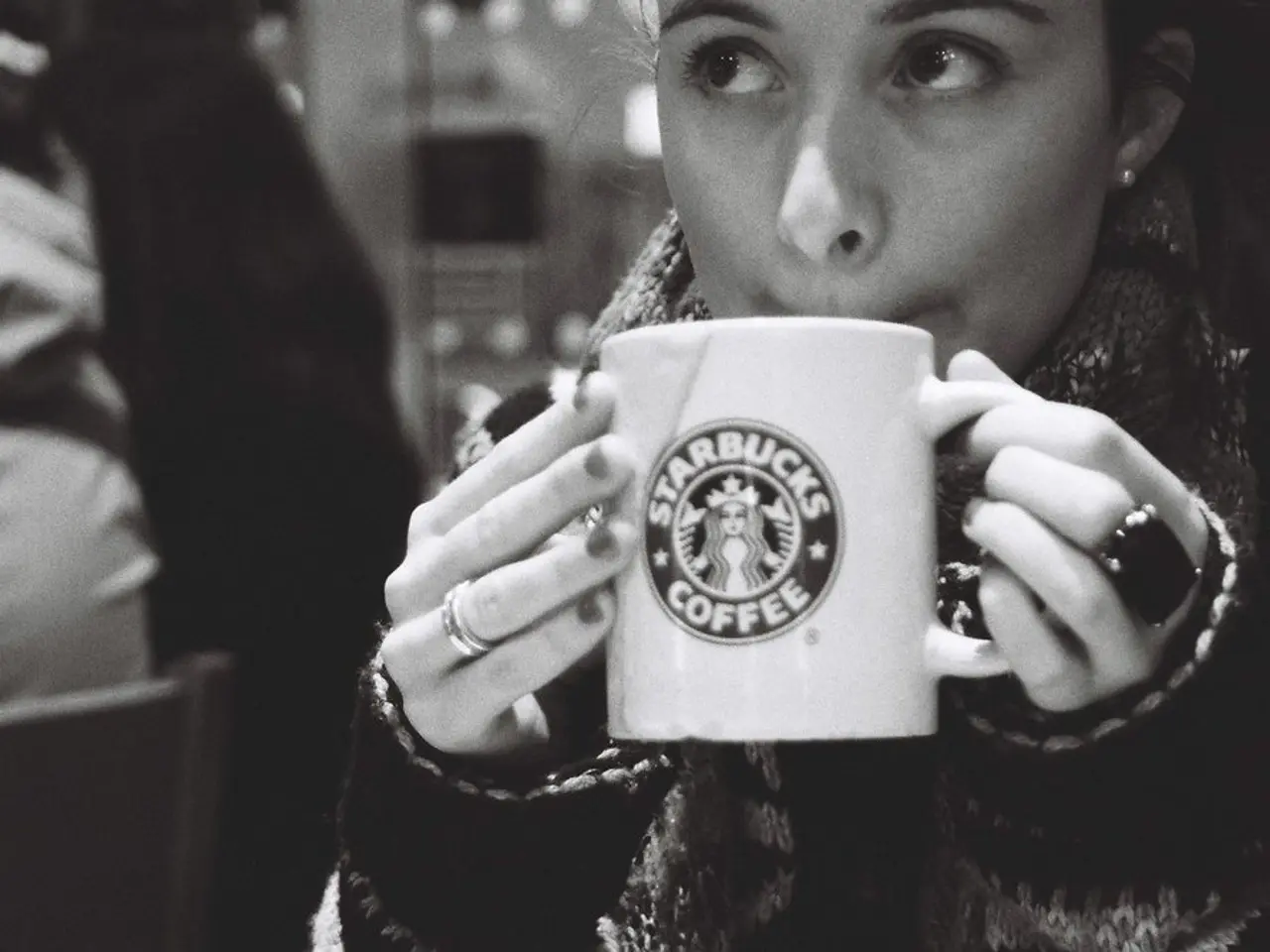Impacts of Caffeine on Bipolar Condition
Bipolar disorder, characterised by dramatic mood swings, can be significantly affected by caffeine consumption. This stimulant, found in coffee, energy drinks, tea, soda, chocolate, and some pain relievers, can exacerbate symptoms of bipolar disorder, particularly by disrupting sleep quality [1][5].
Sleep disruption caused by caffeine can trigger or worsen mood episodes in bipolar disorder, impeding treatment effectiveness [5]. As quality sleep is an important component of managing the symptoms of bipolar disorder, it's crucial for individuals with the condition to prioritise sleep hygiene and mood stability.
In terms of recommended caffeine limits, general guidelines suggest up to 400 mg per day for healthy adults. However, people with bipolar disorder often need to consume less due to their increased sensitivity to stimulants and potential interactions with psychiatric medications [1][2]. Although there is no universally agreed-upon safe caffeine threshold specifically for bipolar disorder, clinicians typically recommend moderate to low caffeine intake or even avoiding caffeine, especially during mood episodes, to minimize risks of mood destabilization and sleep disturbances [5].
While healthy adults can typically consume up to 400 mg per day, those with bipolar disorder are usually advised to limit intake more strictly to avoid mood destabilization [2][5]. Withdrawal from caffeine can cause fatigue and headaches, but tapering slowly is generally advised to reduce symptoms [2].
It's essential to note that the effects of caffeine on bipolar disorder symptoms are not extensively studied, and more research is needed to understand and interpret its possible effects [5]. Some evidence suggests that caffeine consumption may trigger episodes of extreme mood disturbances in people with bipolar disorder, specifically manic episodes [5].
The International Bipolar Foundation recommends that people with bipolar disorder avoid caffeine entirely, while the American Psychiatric Association suggests that individuals likely to be sensitive to caffeine simply monitor their intake and reduce it if necessary [6]. Many clinical trials involving people with bipolar disorder require participants to limit or avoid caffeine due to its potential effects on symptoms and possible drug interactions.
In summary, individuals with bipolar disorder should monitor and limit caffeine consumption carefully, under medical supervision. Exact limits vary but are generally lower than the 400 mg daily maximum recommended for the general population. It's crucial to check the specific caffeine levels before consuming any products and to discuss any concerns with a psychiatrist.
References: [1] Antoniades, C., et al. (2019). Caffeine and mental health. Journal of Neuropsychiatry and Clinical Neurosciences, 31(4), 327-335. [2] Bipolar disorder. (2021). Mayo Clinic. Retrieved from https://www.mayoclinic.org/diseases-conditions/bipolar-disorder/symptoms-causes/syc-20355537 [3] Caffeine. (2021). National Library of Medicine. Retrieved from https://medlineplus.gov/caffeine.html [4] Caffeine and sleep. (2021). National Sleep Foundation. Retrieved from https://www.sleepfoundation.org/articles/caffeine-and-sleep [5] Caffeine and Bipolar Disorder: What You Should Know. (2020). Healthline. Retrieved from https://www.healthline.com/health/bipolar-disorder/caffeine [6] Caffeine and Mood Disorders. (2021). International Bipolar Foundation. Retrieved from https://ibpf.org/learn/caffeine-mood-disorders/
Mental health professionals often advise people with bipolar disorder to moderate or avoid caffeine consumption due to its potential for disrupting sleep and exacerbating mood episodes [5]. Owing to their increased sensitivity to stimulants and possible interactions with psychiatric medications, individuals with bipolar disorder may require stricter caffeine limits than the general population [2].




